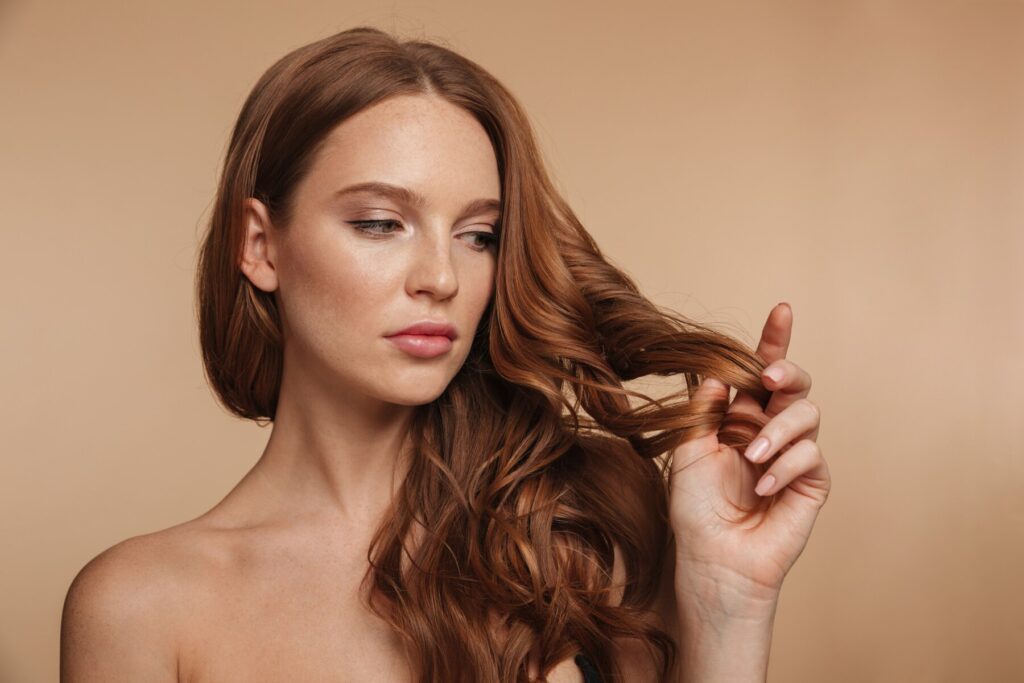The Role of Ayurveda in Singaporean Hair Care

Ayurveda, which translates to “the science of life,” is an ancient Indian healing system that has been practiced for thousands of years. It is a holistic approach to health and wellness that focuses on balancing the mind, body, and spirit. Ayurveda believes that each individual is unique and has a specific constitution or dosha, which determines their physical and mental characteristics.
The history of Ayurveda dates back over 5,000 years to ancient India. It is believed to be the oldest healing system in the world and has been passed down through generations. Ayurveda was first documented in the Vedas, which are ancient texts that contain knowledge about various subjects including medicine, philosophy, and spirituality.
The principles of Ayurveda are based on the belief that everything in the universe is interconnected. According to Ayurveda, there are five elements – earth, water, fire, air, and ether – that make up everything in the universe, including our bodies. These elements combine to form three doshas – Vata (air and ether), Pitta (fire and water), and Kapha (earth and water). Each dosha has its own unique qualities and governs different functions in the body.
Understanding Hair Care: The Importance of Ayurvedic Principles in Maintaining Healthy Hair
Many people struggle with common hair problems such as hair loss, dandruff, dryness, and frizz. These issues can be caused by a variety of factors including genetics, hormonal imbalances, poor nutrition, stress, and environmental factors. Traditional hair care products often contain harsh chemicals that can further damage the hair and scalp.
Ayurveda takes a holistic approach to hair care by addressing the root cause of these problems rather than just treating the symptoms. According to Ayurveda, healthy hair starts from within. It is important to maintain a balanced diet, get enough sleep, manage stress, and practice good hygiene to promote healthy hair growth.
Ayurvedic hair care also emphasizes the use of natural ingredients that are gentle and nourishing for the hair and scalp. These ingredients are believed to have specific properties that can address different hair concerns. For example, aloe vera is known for its soothing and moisturizing properties, while neem oil has antibacterial and antifungal properties that can help with dandruff.
Ayurvedic Hair Care Products: A Guide to Natural Ingredients and Their Benefits
Ayurvedic hair care products are made from natural ingredients that have been used for centuries in traditional Indian medicine. These ingredients are carefully selected for their specific properties and benefits for the hair and scalp. Here are some commonly used ingredients in Ayurvedic hair care:
1. Amla (Indian Gooseberry): Amla is rich in vitamin C and antioxidants, which can help strengthen the hair follicles and promote healthy hair growth. It also has antimicrobial properties that can help prevent scalp infections.
2. Bhringraj: Bhringraj is known as the “king of herbs” in Ayurveda and is often used to promote hair growth and prevent premature graying. It has cooling properties that can soothe the scalp and reduce inflammation.
3. Brahmi: Brahmi is a powerful herb that is known for its ability to improve blood circulation to the scalp, which can promote healthy hair growth. It also has calming properties that can help reduce stress and anxiety.
4. Hibiscus: Hibiscus is rich in vitamins A and C, which can help nourish the hair follicles and promote healthy hair growth. It also has astringent properties that can help control excess oil production on the scalp.
5. Shikakai: Shikakai is a natural cleanser that has been used in Ayurveda for centuries. It gently cleanses the hair and scalp without stripping away natural oils. It also has conditioning properties that can help soften the hair and prevent tangles.
Recommended Ayurvedic hair care products include herbal shampoos, hair oils, and hair masks that are made with these natural ingredients. These products are free from harsh chemicals and are gentle enough to use on a regular basis.
Ayurvedic Scalp Treatments: How They Can Help with Hair Growth and Scalp Health
In addition to using Ayurvedic hair care products, Ayurveda also recommends regular scalp treatments to promote healthy hair growth and maintain scalp health. These treatments can help improve blood circulation to the scalp, remove impurities, and nourish the hair follicles. Here are some different Ayurvedic scalp treatments:
1. Hot oil massage: A hot oil massage is a popular Ayurvedic treatment that involves massaging warm oil into the scalp and hair. This helps to improve blood circulation to the scalp, nourish the hair follicles, and promote healthy hair growth. Some commonly used oils for this treatment include coconut oil, almond oil, and sesame oil.
2. Herbal steam: Herbal steam is another Ayurvedic treatment that can help improve blood circulation to the scalp and remove impurities. It involves steaming the scalp with a mixture of herbs such as rosemary, lavender, and neem. This treatment can help soothe the scalp, reduce inflammation, and promote healthy hair growth.
3. Scalp exfoliation: Scalp exfoliation is a gentle scrubbing technique that helps remove dead skin cells, excess oil, and product buildup from the scalp. This treatment can help unclog hair follicles, promote healthy hair growth, and prevent dandruff. Some commonly used ingredients for this treatment include fenugreek seeds, rice flour, and lemon juice.
It is important to note that these treatments should be performed by a trained professional or under the guidance of an Ayurvedic practitioner. They can also be done at home, but it is important to follow the proper techniques and use the right ingredients.
Ayurvedic Massage Techniques: Promoting Hair Growth and Relaxation
Ayurvedic scalp massage is an important part of Ayurvedic hair care as it helps improve blood circulation to the scalp, nourish the hair follicles, and promote healthy hair growth. It also has a relaxing effect on the mind and body, reducing stress and promoting overall well-being. Here are some different Ayurvedic massage techniques:
1. Abhyanga: Abhyanga is a full-body massage technique that involves massaging warm oil into the scalp, hair, and body. This helps to improve blood circulation, nourish the hair follicles, and promote healthy hair growth. Some commonly used oils for this massage include coconut oil, sesame oil, and almond oil.
2. Shirodhara: Shirodhara is a therapeutic Ayurvedic treatment that involves pouring a continuous stream of warm oil onto the forehead. This helps to calm the mind, reduce stress, and promote relaxation. It can also help improve blood circulation to the scalp and nourish the hair follicles.
3. Champi: Champi is a traditional Indian head massage technique that involves massaging the scalp with warm oil. This helps to improve blood circulation to the scalp, stimulate hair growth, and reduce stress. It can also help relieve tension headaches and promote relaxation.
To perform an Ayurvedic scalp massage at home, start by warming up some oil in a bowl of hot water. Apply the warm oil to your scalp and hair using your fingertips. Gently massage the oil into your scalp using circular motions for about 10-15 minutes. Leave the oil on for at least 30 minutes or overnight before washing it off with a mild shampoo.
Doshas and Hair Care: How to Determine Your Hair Type and Choose the Right Ayurvedic Treatment
According to Ayurveda, each individual has a specific constitution or dosha that determines their physical and mental characteristics. There are three doshas – Vata, Pitta, and Kapha – and each dosha has its own unique qualities. Understanding your dosha can help you determine your hair type and choose the right Ayurvedic treatment for your hair concerns.
1. Vata hair: Vata hair is typically dry, thin, and prone to frizz. It may also be brittle and prone to breakage. To care for Vata hair, it is important to use moisturizing and nourishing products that can help hydrate the hair and prevent dryness. Recommended Ayurvedic treatments for Vata hair include hot oil massages with nourishing oils such as coconut oil or almond oil.
2. Pitta hair: Pitta hair is typically fine, straight, and prone to oiliness. It may also be prone to premature graying and hair loss. To care for Pitta hair, it is important to use cooling and soothing products that can help balance excess oil production on the scalp. Recommended Ayurvedic treatments for Pitta hair include herbal steam treatments with cooling herbs such as rosemary or neem.
3. Kapha hair: Kapha hair is typically thick, wavy, and prone to oiliness. It may also be heavy and lack volume. To care for Kapha hair, it is important to use clarifying and stimulating products that can help remove excess oil and build-up from the scalp. Recommended Ayurvedic treatments for Kapha hair include scalp exfoliation with ingredients such as fenugreek seeds or rice flour.
It is important to note that these are general guidelines and individual results may vary. It is always best to consult with an Ayurvedic practitioner or hair care professional to determine your specific hair type and choose the right Ayurvedic treatment for your needs.
Ayurvedic Hair Care Rituals: Incorporating Ayurveda into Your Daily Hair Care Routine
Incorporating Ayurveda into your daily hair care routine can help promote healthy hair growth, maintain scalp health, and improve overall well-being. Here are some recommended Ayurvedic hair care rituals:
1. Oil your hair regularly: Regular oiling is an important part of Ayurvedic hair care as it helps nourish the hair follicles, promote healthy hair growth, and prevent dryness. Choose a natural oil that is suitable for your hair type and massage it into your scalp and hair at least once a week.
2. Use a gentle shampoo: Traditional shampoos often contain harsh chemicals that can strip away natural oils from the hair and scalp. Instead, opt for a gentle shampoo that is free from sulfates and parabens. Look for a shampoo that is made with natural ingredients such as aloe vera, neem, or shikakai.
3. Condition your hair naturally: Instead of using commercial conditioners that are filled with chemicals, opt for natural conditioners that are made with nourishing ingredients such as aloe vera, hibiscus, or coconut milk. These natural conditioners can help soften the hair, prevent tangles, and add shine.
4. Practice good hygiene: Good hygiene is essential for maintaining a healthy scalp and preventing scalp infections. Wash your hair regularly to remove dirt, oil, and product buildup from the scalp. Avoid using hot water as it can strip away natural oils from the hair and scalp.
5. Eat a balanced diet: A balanced diet is important for promoting healthy hair growth and maintaining overall well-being. Include foods that are rich in vitamins, minerals, and antioxidants such as fruits, vegetables, whole grains, and lean proteins. Avoid processed foods, sugary snacks, and excessive caffeine.
By incorporating these Ayurvedic hair care rituals into your daily routine, you can promote healthy hair growth, maintain scalp health, and improve the overall condition of your hair.
Ayurvedic Hair Care for Specific Hair Concerns: Dandruff, Hair Loss, and Dryness
Ayurveda offers specific treatments for common hair concerns such as dandruff, hair loss, and dryness. These treatments are designed to address the root cause of these problems and promote healthy hair growth. Here are some recommended Ayurvedic treatments for specific hair concerns:
1. Dandruff: Dandruff is a common scalp condition that is characterized by flaking and itching. It can be caused by a variety of factors including dry scalp, fungal infections, and excessive oil production. To treat dandruff, it is important to keep the scalp clean and moisturized. Recommended Ayurvedic treatments for dandruff include herbal steam treatments with neem or rosemary, scalp exfoliation with fenugreek seeds or lemon juice, and hot oil massages with coconut oil or tea tree oil.
2. Hair loss: Hair loss can be caused by a variety of factors including genetics, hormonal imbalances, poor nutrition, stress, and environmental factors. To promote healthy hair growth and prevent hair loss, it is important to nourish the hair follicles and improve blood circulation to the scalp. Recommended Ayurvedic treatments for hair loss include hot oil massages with bhringraj or brahmi oil, herbal steam treatments with lavender or rosemary, and scalp exfoliation with amla or hibiscus.
3. Dryness: Dryness can be caused by a variety of factors including dry scalp, excessive heat styling, and harsh chemicals in hair care products. To moisturize the hair and prevent dryness, it is important to use hydrating and nourishing products. Recommended Ayurvedic treatments for dryness include hot oil massages with almond or sesame oil, herbal steam treatments with aloe vera or hibiscus, and scalp exfoliation with rice flour or coconut milk.
It is important to note that these treatments may take time to show results and individual results may vary. It is always best to consult with an Ayurvedic practitioner or hair care professional for personalized advice and treatment options.
Ayurvedic Hair Care for Different Seasons: Adapting Your Hair Care Routine to the Climate
The climate can have a significant impact on the health and condition of your hair. Different seasons can bring different challenges such as dryness in winter, humidity in summer, and pollution throughout the year. Adapting your hair care routine to the climate can help protect your hair from these challenges and maintain its health. Here are some recommended Ayurvedic hair care routines for different seasons:
1. Winter: In winter, the air tends to be dry, which can lead to dry scalp and hair. To combat dryness, it is important to moisturize the hair and scalp regularly. Use hydrating oils such as almond oil or sesame oil for hot oil massages. Avoid excessive heat styling and use a humidifier in your home to add moisture to the air.
2. Summer: In summer, the air tends to be humid, which can lead to frizz and excess oil production on the scalp. To control frizz and excess oil production, it is important to use lightweight and oil-free hair products. Opt for a clarifying shampoo to remove any buildup on the scalp and follow it up with a lightweight conditioner. Avoid heavy styling products and instead, use a leave-in conditioner or a serum to tame frizz. Additionally, try to limit the use of heat styling tools as they can further contribute to frizz. Embrace natural hairstyles or opt for updos to keep hair off the neck and prevent excessive sweating. Lastly, protect your hair from the sun by wearing a hat or using a UV-protective spray.

